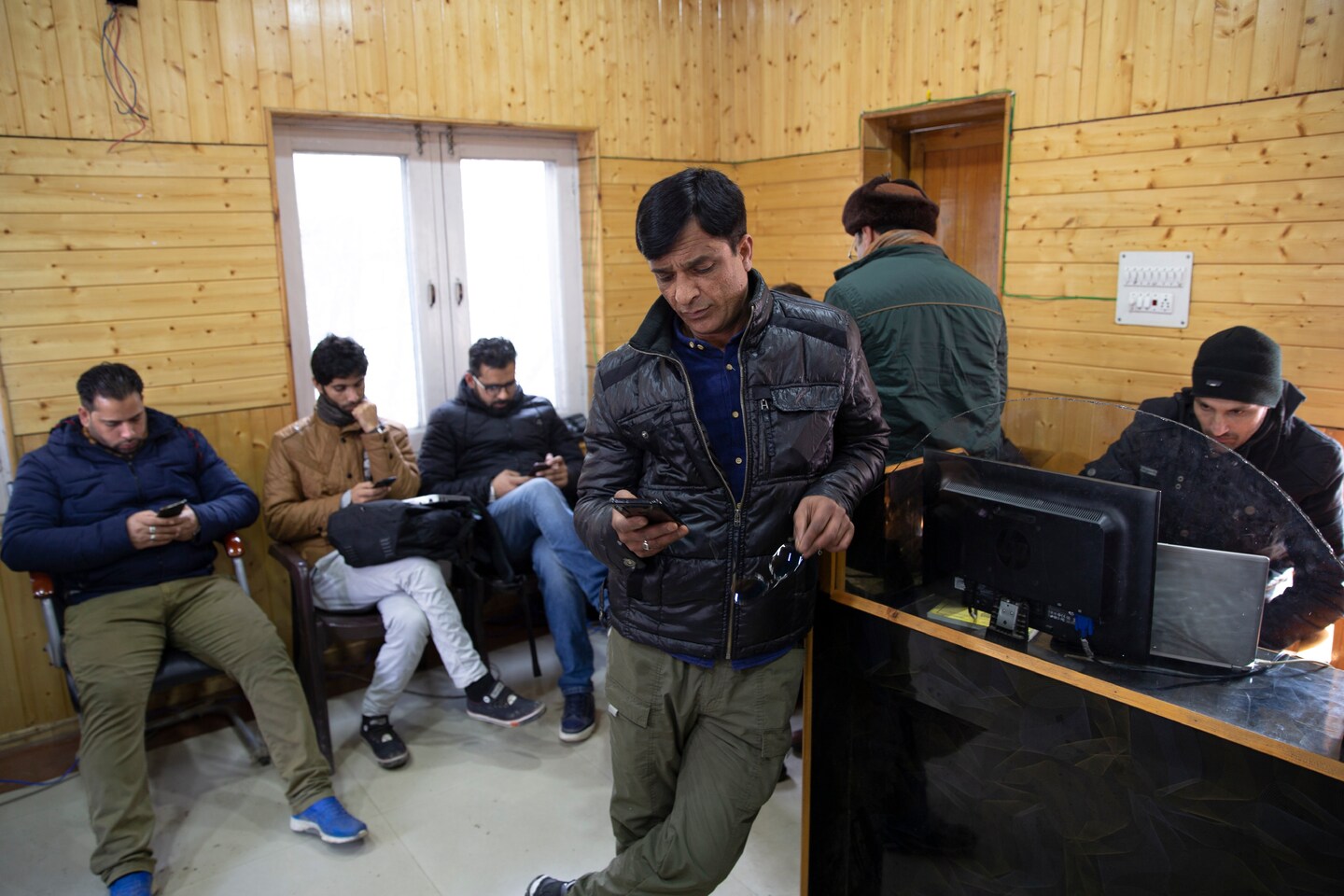Triggers for shutdowns have included large protests, conflict situations, elections and even examinations. Whatever the situation, they make it substantially more difficult for people to communicate and receive or send news, and they incur significant economic costs, which prompted the United Nations last year to call for governments to avoid using such a blunt tactic.
“This can be a big warning sign of how the human rights situation is deteriorating, and shutdowns are often associated with increased levels of insecurity and other restrictions,” said Liz Throssell, a spokeswoman at the U.N. Human Rights Office in Geneva.
India is the most prolific at suspending the internet, topping Access Now’s list for the fifth year in a row.
A majority of the South Asian country’s 84 disruptions were logged in Indian-administered Kashmir, part of a disputed region in the Himalayas. India has at times cited a desire to control social unrest in the territory, where there is a separatist movement. In response to a more than 100-day internet shutdown in Kashmir, the country’s Supreme Court ruled in 2020 that such suspensions need to be proportionate and for a defined period.
India’s continued position at the top of the index is alarming, said Raman Jit Singh Chima, the Asia policy director at Access Now. “India is also remarkable for the refusal of [its central government] to respond to criticism and calls for reform of its shutdown practices and legal structure by Indian parliamentary bodies and previous court judgments.”
(Some of the shutdowns in India were initiated by local authorities. Internet controls only affect a very small fraction of India’s internet users, said Rajeev Chandrasekhar, junior minister in the Electronics and Information Technology Ministry in New Delhi, adding that “characterizations about ‘alarming development’ are plain wrong.”)
The Russian invasion of Ukraine in 2022 and mass civilian protests in Iran also led to internet shutdowns, Access Now reported.
All 22 shutdown incidents recorded in Ukraine were a result of Russian actions, including cyber- and airstrikes targeting the country’s communications infrastructure, the report said. Ukrainian internet services, supported by foreign partners, remain relatively resilient, The Washington Post has reported.
In Russia, Moscow also blocked access to services such as Twitter, Facebook and Instagram, in what the report said was part of a broader crackdown on dissent and an effort to control propaganda on the invasion of Ukraine.
As Tehran violently clamps down on protests sparked by the death of a young woman in the custody of its “morality police,” its theocratic government is also imposing social media blocks. Authorities imposed a record 18 shutdowns in 2022, which included blocking Instagram and the WhatsApp messaging service, the report said. The two global social media platforms had been the only ones accessible in the country in recent years, it added.
In response to the crackdown, the United States in September issued new guidance on some of its export bans, making it easier for tech companies to offer secure platforms and services to Iranians.
Autocrats in Ethiopia and Myanmar have used internet suspensions to complement military strategy by cutting off access for select populations for months or years, the authors said.
Access Now said the internet suspension in the northern Ethiopian region of Tigray, first imposed in 2020, is the world’s longest active shutdown. Telephone networks in the area were reported to be back online following a truce agreed to in November, but Access Now noted in February that internet access was still slow or degraded.
The military junta that retook power in Myanmar after a 2021 coup has also instituted sweeping internet suspensions across the country. All of its 330 townships were subject to at least one shutdown last year, the report said.
“In 2022, under authoritarian regimes and in democracies, powermongers accelerated their use of these callous tactics, disrupting the internet to fuel their agendas of oppression,” Felicia Anthonio of Access Now said in a statement, adding that “open, secure internet access belongs to all, and we will continue to meet these attacks on human rights with collective defiance.”
You can also get more details from here – Click Here





